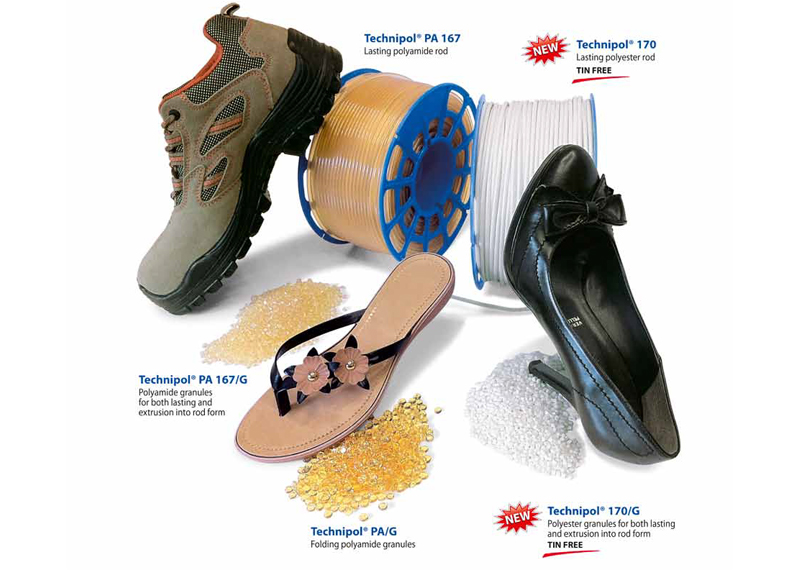SIPOL® INTRODUCES A NEW RANGE OF TIN-FREE PRODUCTS FOR THE FOOTWEAR INDUSTRY.
ARS SUTORIA
SIPOL® is known worldwide in the footwear industry for both its co-polyester and copolyamide lasting adhesives in rod form. However, Sipol’s main activity consists in polymer chemistry. In fact, driven by a ceaseless attention to product innovation, SIPOL® is continuously investing in research and development of new grades. One of the main objectives of its research is the development of high efficiency materials that guarantee the lowest possible toxicity to both the end users and the environment. This is one of the most common requirements from all the industrial sectors in which SIPOL® is active: footwear, automotive, food packaging, personal care, etc.
Many footwear companies, which pay great attention to the toxicity of the materials used for their shoes, have requested SIPOL® to develop a co-polyester range with a total absence or organo-tin compounds, of which toxicity is proved on both immune system and development mechanisms in mammals.
This request, already made by both the automotive and the food packaging sectors, aims at improving the existing regulation which demands that the maximum content of organo-tin compounds (to be found in commonly used materials) must not exceed 0.1% in weight (L86/10 as reported on the Gazzetta Ufficiale of European Union and ISO/TS 16179 Footwear).
Notwithstanding the tin content present in TECHNIPOL® product range was already lower by one order of magnitude to the Regulation limit, SIPOL® designed and created catalytic free systems for polymerising both TECHNIPOL® 170 G, which is the basic polymer of our TECHNIPOL® 170 (polyester rod for toe lasting machines), and TECHNIPOL® 70, a low melting co-polyester grade for toe puffs and counters.
In addition to the updated Technical data sheets of its TECHNIPOL® 170, TECHNIPOL® 170 G and TECHNIPOL® 70, where SIPOL® declares the total absence of tin content compounds (tin-free), specific declarations can be requested to its laboratory.

